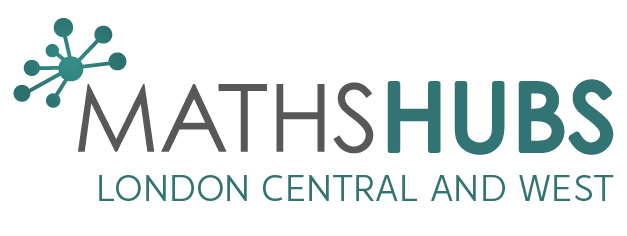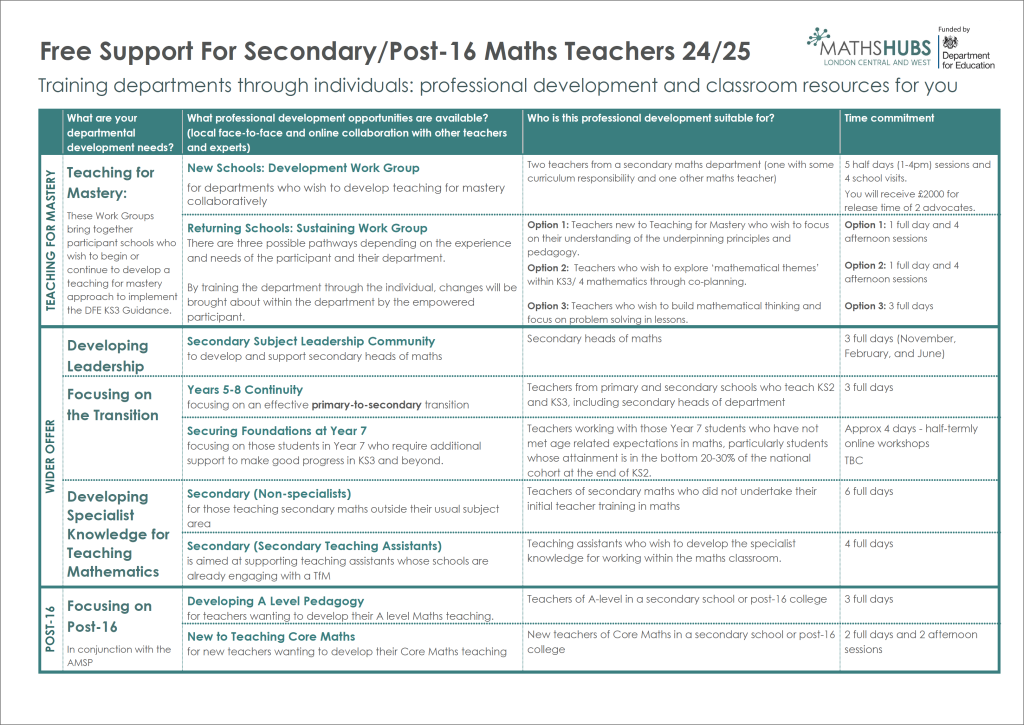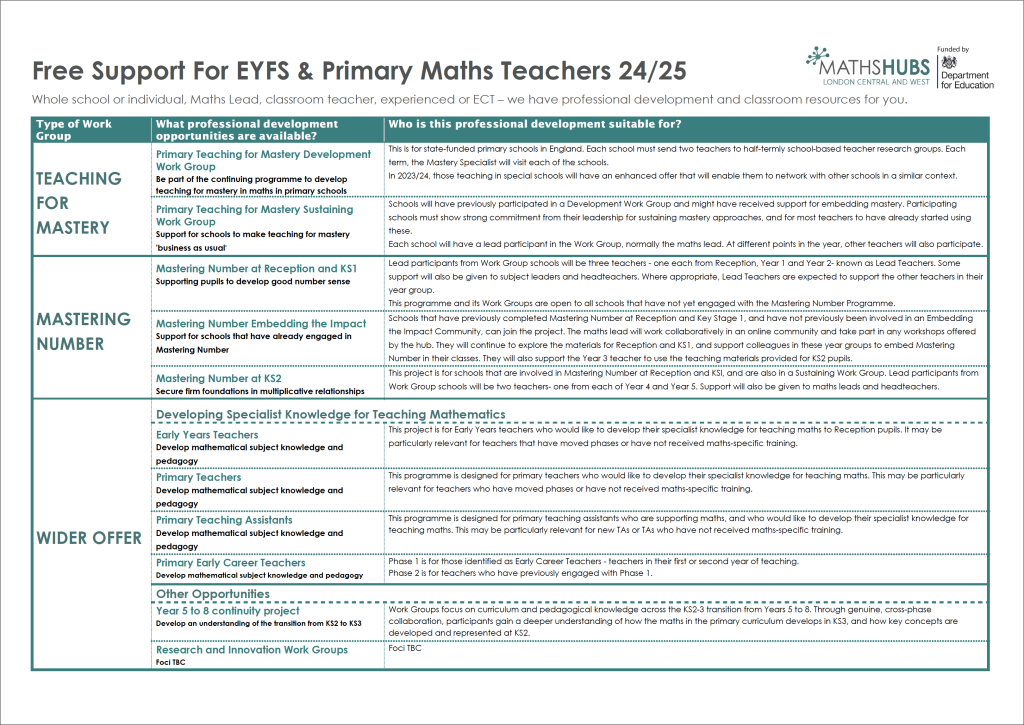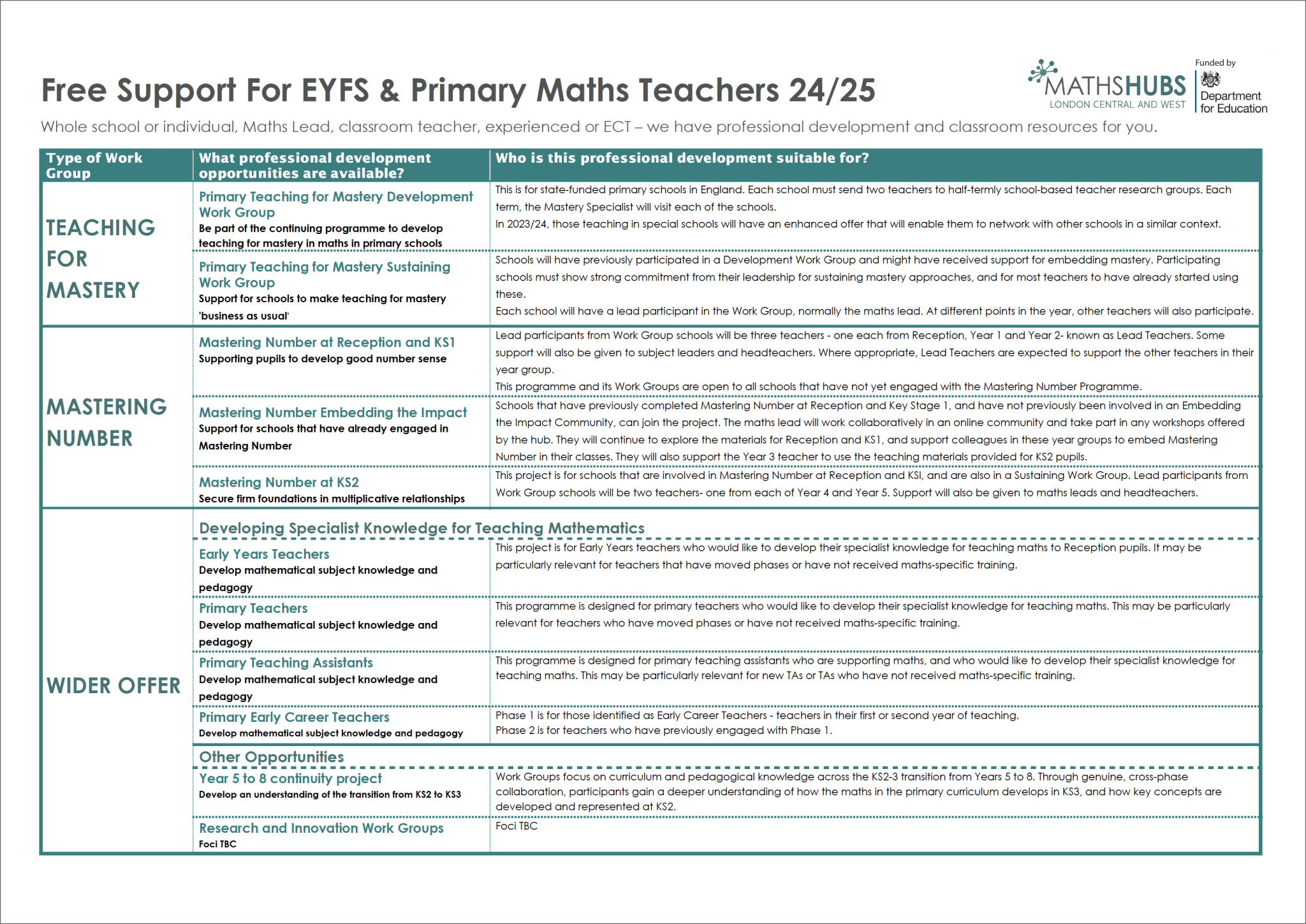Teaching for Mastery – Secondary
St Marks Catholic School visited Shanghai in 2015 and have since changed the way they teach KS3 to incorporate Teaching for Mastery. They have found this approach to be very successful. In addition to this, many primaries have begun to adopt this practice. This was an opportunity for teachers to work closely with a teacher from St Marks who will be trained by the NCETM as a Secondary Mastery Specialist.
Activities included:
- Observing lessons led by TfM specialist and taking part in Shanghai style discussions
- Collaborative planning workshops
- In school professional development activities
- Observing both Chinese teachers and Primary Mastery Specialists
- Working closely with teachers from other schools interested in developing this approach
Please contact Michelle.foster@foxprimary.co.uk if you would like to be involved.
Mathematical reasoning
Reasoning is one of the key themes in the new National Curriculum and a focus for the Maths Hubs Network. It is essential that schools develop students who are able to think mathematically and solve problems in a range of contexts. Students need to be able to articulate their reasoning in order to deepen their understanding of the mathematics and develop solutions to problems. This workgroup enabled all hubs to offer nationally coordinated support to teachers and their departments so that they could collaborate together in developing this aspect of their curriculum provision. It also provided a possible approach for departments considering how to engage with the teaching and learning implications of the new KS3 programmes of study.
Transfer Project (Y5/Y6/Y7)
There were 5 schools involved: 4 primary feeder schools and 1 secondary school. The Hub had done work in the past with all 4 primary feeder schools and also the secondary school. They had expressed a desire to connect with each other so a long-term form of communication could be set – thereby making the transition easier for their Y6 pupils to Y7. The secondary school maths lead had said that Y7 teachers found it very difficult as they had very little idea about where the children were coming from with regards to Maths and also that each school had a slightly different approach. This project allowed the primary schools to share practice and also the secondary school to understand the foundations of their pupils’ learning and understanding within this subject.
Most useful:
‘Seeing the lessons and then discussion what we’ve seen to filly understand how we can use it afterwards.’
‘Discussion after lesson to talk about teaching methods in other schools.’
‘Viewing the Year 6 lesson meant that I learnt a lot about the expectation of our students when they leave primary which I can take over to Year 7 lessons.’
‘Discussion of observation and general teaching practice in primary schools. I had a good insight into the level of mastery maths development in primary schools and it informed me of the need for secondary schools to incorporate this.’
‘Appreciating common difficulties in the teaching of maths.’
‘Seeing and discussion of the methods that the students are used to for particular topics.’
The primary teachers found it very beneficial to see their own students in a secondary context and to consider the pros and cons of a setting. They also found it useful seeing the different teaching styles – while mastery wasn’t necessarily in action, they saw many elements of it being used.
‘Seeing the primary teacher’s questioning – it was most impressive’
This academic year we will be doing a Y5-Y8 Continuity Project (Current Projects-Secondary Tab), which builds on some of these ideas.





